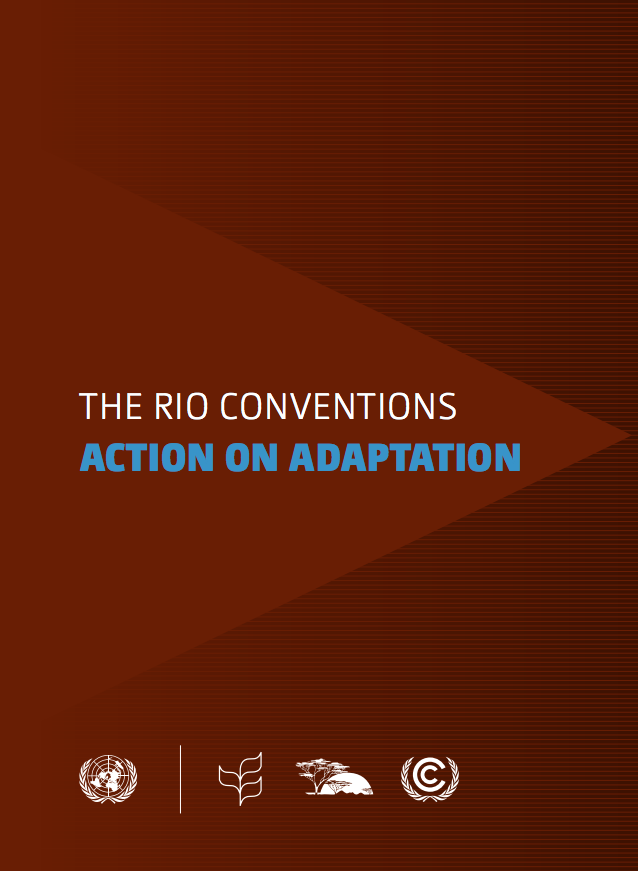Resource information
The earth’s climate is changing at a rate unprecedented in recent human history and will continue to do so for the foreseeable future. The impacts and risks associated with this are global, geographically diverse and increasingly being felt across a range of systems and sectors essential for human livelihoods and well-being. The more severe and far-reaching the impacts of climate change are, the greater the loss of species will be, and the greater the deterioration of drylands and the risk of desertification and land degradation around the world will be. These impacts not only threaten global efforts to achieve the Millennium Development Goals and sustainable development, but for many vulnerable communities, especially the least developed countries (LDCs) and small island developing States (SIDS), these impacts threaten their very survival.
The Rio Conventions – the Convention on Biological Diversity (CBD), the United Nations Convention to Combat Desertification (UNCC D), and the United Nations Framework Convention on Climate Change (UNFCCC ) – address the need for adaptation to climate change through their activities. The secretariats of the Rio Conventions seek to enhance coordination and synergy, including on adaptation, through the Joint Liaison Group (JLG). This publication on the occasion of the Rio+20 Conference highlights the roles of the Rio Conventions’ processes involved in biodiversity, combating desertification/land degradation and climate change as important contributors to the global sustainable development agenda, drawing attention to successes and future opportunities.
The Rio Conventions collectively offer a range of tools, services and expertise that assist vulnerable countries and communities in enabling effective adaptation and achieving sustainable development. Through facilitating knowledge-sharing and learning, strengthening technical and institutional capacities, and facilitating access to financial and technological support, the Rio Conventions support Parties in undertaking the full adaptation cycle: from assessing impacts, risks and vulnerability, to planning and implementing adaptation actions, to monitoring and evaluation. A coordinated approach to responding to climate change can ensure that adaptation activities have multiple benefits, including combating desertification and preventing biodiversity loss, thus catalysing progress in achieving sustainable development goals.


